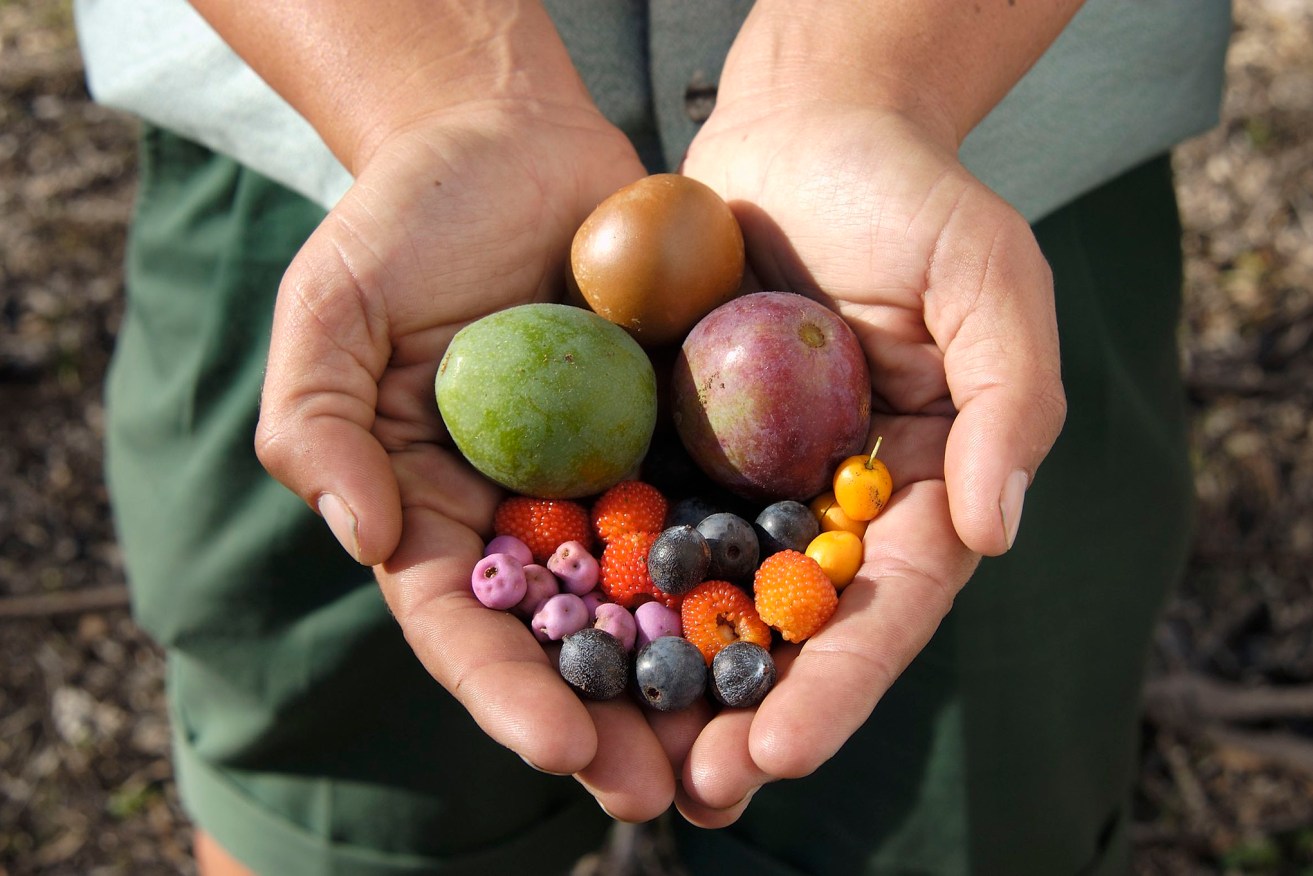Bush remedy: How native foods might make people and the planet healthier
Native fruits are among the key ingredients of a new drink aimed at reducing chronic disease in First Nations communities, as researchers also probe their potential for lifting production in a climate-challenged world.


The benefits of native and tropical foods have come under the the spotlight at a major conference in Brisbane.
The new drink under development was subjected to feedback from more than 1000 delegates gathering for the TropAg conference this week in Brisbane where food security has been the number one topic on the agenda
While the feedback is still being collated, University of Queensland PhD candidate Jessica Cartwright thinks her beverage containing native ingredients and less sugar is a healthy formula that will fight disease while generating business opportunities for Indigenous communities where traditional bush foods are cultivated.
“In Indigenous communities there are higher rates of sugar-sweetened beverages consumed than compared to the rest of the country,” Cartwright said.
“We know this leads to negative health outcomes – chronic diseases like type two diabetes, obesity, and cardiovascular disease, all the nasty stuff.
“But what we haven’t figured out is why Indigenous people are so drawn to these sugary drinks.”
She said a few interventions to reduce sugar-sweetened beverage consumption in these communities have been tried and tested without addressing the root cause.
“These programs are often ineffective or not sustainable long term, so we’re coming up with an alternative approach,” she said.
“We are creating a healthier drink using native ingredients to empower communities and connect them to Country.”
The current drink still classified as a prototype has a base of Kakadu and Davidson plum with the prospect of including Finger lime if some communities grow these in greater abundance.
“We really want them to be able to take ownership of the drink to create an Indigenous enterprise,” Cartwright said.
“There is also the route of commercialisation down the track, but all the profits would be going to the Indigenous communities.”
Michelle On from Kiril Park Wild Harvest said as an Indigenous person, she had seen firsthand the impact of chronic disease and was happy to be involved with a project aiming to address the issue.
“It’s really sad to see chronic diseases affecting Indigenous people when traditional foods have so many nutritional benefits,” Ms On said.
“I hope awareness will lead to healthier eating habits and this Kakadu plum beverage is the perfect alternative to high sugar soft drinks.”
University of Queensland’s Professor Henrietta Marrie told the TropAg conference this week that while Australia had a growing bushfood industry, not enough had been done to get Indigenous people in the market.
“In Australia, we need to treasure the knowledge system of Indigenous people and work at how to bring their food to the table in a way that exposes the varieties that we have in Australia and how it can be a part of everyone’s diet,” Marrie said.
“Traditional Australian foods were projected to be a million-dollar market in the 1980s, and while those expectations have been exceeded, primarily non-Indigenous people have benefitted.”
Another UQ professor Paul Gauthier told the conference that building a sustainable and reliable food production system, particularly in the field of protected cropping, was one of the biggest challenges facing the world.
He said there were “huge opportunities” for Australia if farmers could produce out of season tropical and subtropical crops, perfectly aligned to the Queensland climate, for global consumption.
“Climate change, natural disasters, digital disruption, population growth and the pandemic all reinforce the need for innovation in the agrifood sector in what is a rapidly changing landscape,” he said.
“My priority is to empower the next generation of farmers with a focus on tropical and sub-tropical crops, which is an emerging industry with a high growth rate.”
Conference chair Professor Matthew Morrell said TropAg was a rare chance to hear from world class scientists and industry experts.
“What we are facing is grim, but we have the skill, technology and science to tackle it head on,” he said.
“Our scientists are at the forefront of the technologies that are changing the world and are making the most of revolutionary changes in plant breeding, protected environments, artificial intelligence and machine learning, all of which will be necessary to provide for the changing world and increased demand for food.”
The TropAg conference concludes on Wednesday.










